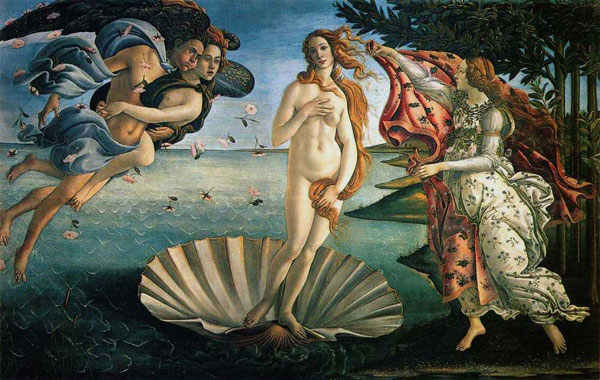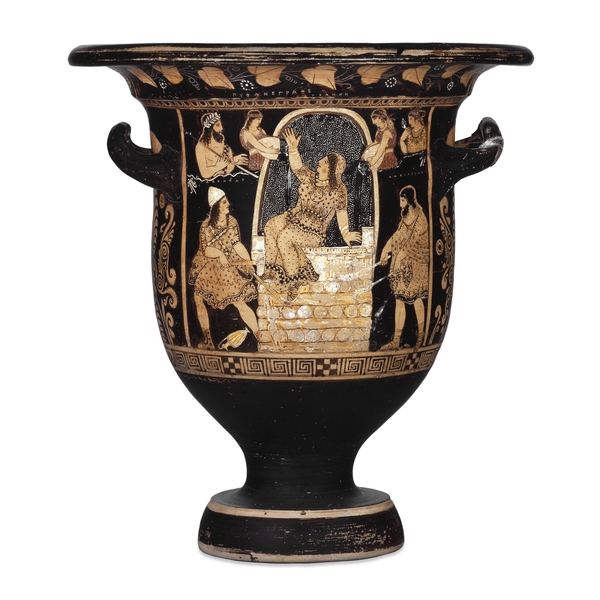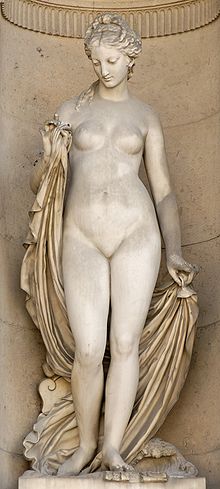Plautus, Rudens (The Rope)
- source play by Greek playwright Diphilus (32); date unknown (late?); one of Shakespeare's sources for The Tempest (1611)

Waterhouse, Miranda in The Tempest, 1916
- title: debate (Scene 21) between Gripus & Trachalio about maritime property rights ("The sea, as we all know, is the common property of all ...", 975ff.)
- unusual setting: farm of Daemones, temple of Venus (harbor & seashore wings) on North African shore near Cyrene (famous for silphium plant = asafoetida?); Athenian “civilization” in background
- unusual tone ("Comedy Seriously"): serious elements; what is comedy (its contents, etc.)?
- Prologue by Arcturus
Rudens 6-30
At night I shine bright on high among the gods,
But by day I promenade in the company of men,
Not unlike the other stars that slide down toward Earth.
Jupiter, the commanding officer of both men and gods,
Assigns each of us a post somewhere across the world,
To study the acts of men, their character and conviction,
Their honesty, and how they handle the wealth they’re granted.
We take down the names of those who suborn perjury,
File frivolous lawsuits or deny their debts before a judge,
And we report them directly to Jupiter.
Thus, he knows who’s up to no good here each and every day.
When the wicked aspire to perjure their way to victory here,
Or win false claims in a court of law,
He retries the case that’s already been tried,
And his punishment’s far more costly than their ill-gotten gains!
He keeps a separate list of the names of the good,
Though this doesn’t keep the scumbags from supposing
That they can win Jupiter over with gifts and sacrifices.
They’re just wasting both their energy and expense,
Seeing that he accepts no offerings from perjurers.
A righteous person who prays to the gods
Is more likely to be liked by them than a scumbag.
My advice for all of you fine folks
Who lead your lives with conviction and honor
Is to continue on that course—you’ll be glad for it later.




